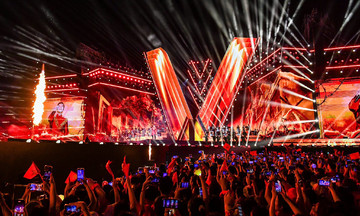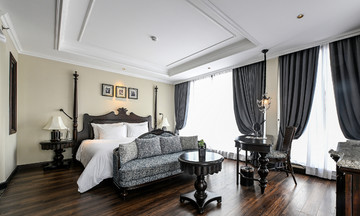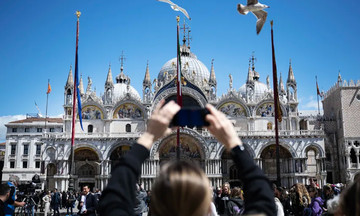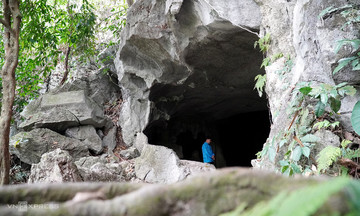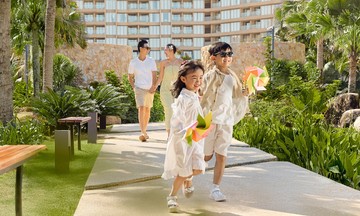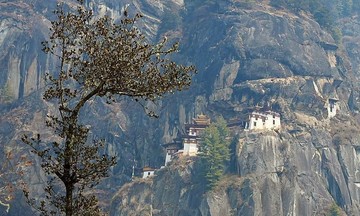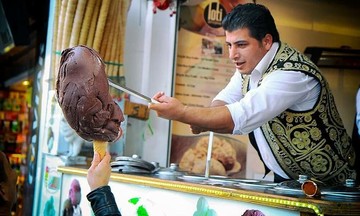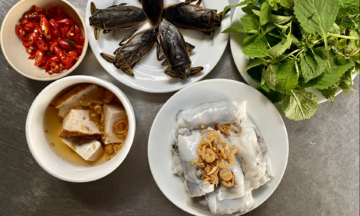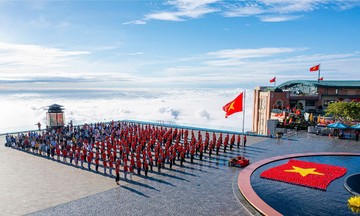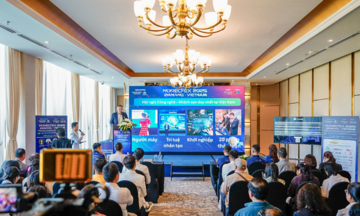Vu Thi Quynh Hoa, 32, deputy director of Con Ga Vang Ninh Thuan Resort, has traveled to over 100 countries and territories, pursuing her goal of visiting every corner of the world.
Among her travels, Hoa has visited the US 4 times. Her most recent trip with her husband was in June. They spent a month exploring Los Angeles, Las Vegas, the Grand Canyon, Antelope Canyon, Bryce Canyon, Miami, and New York.
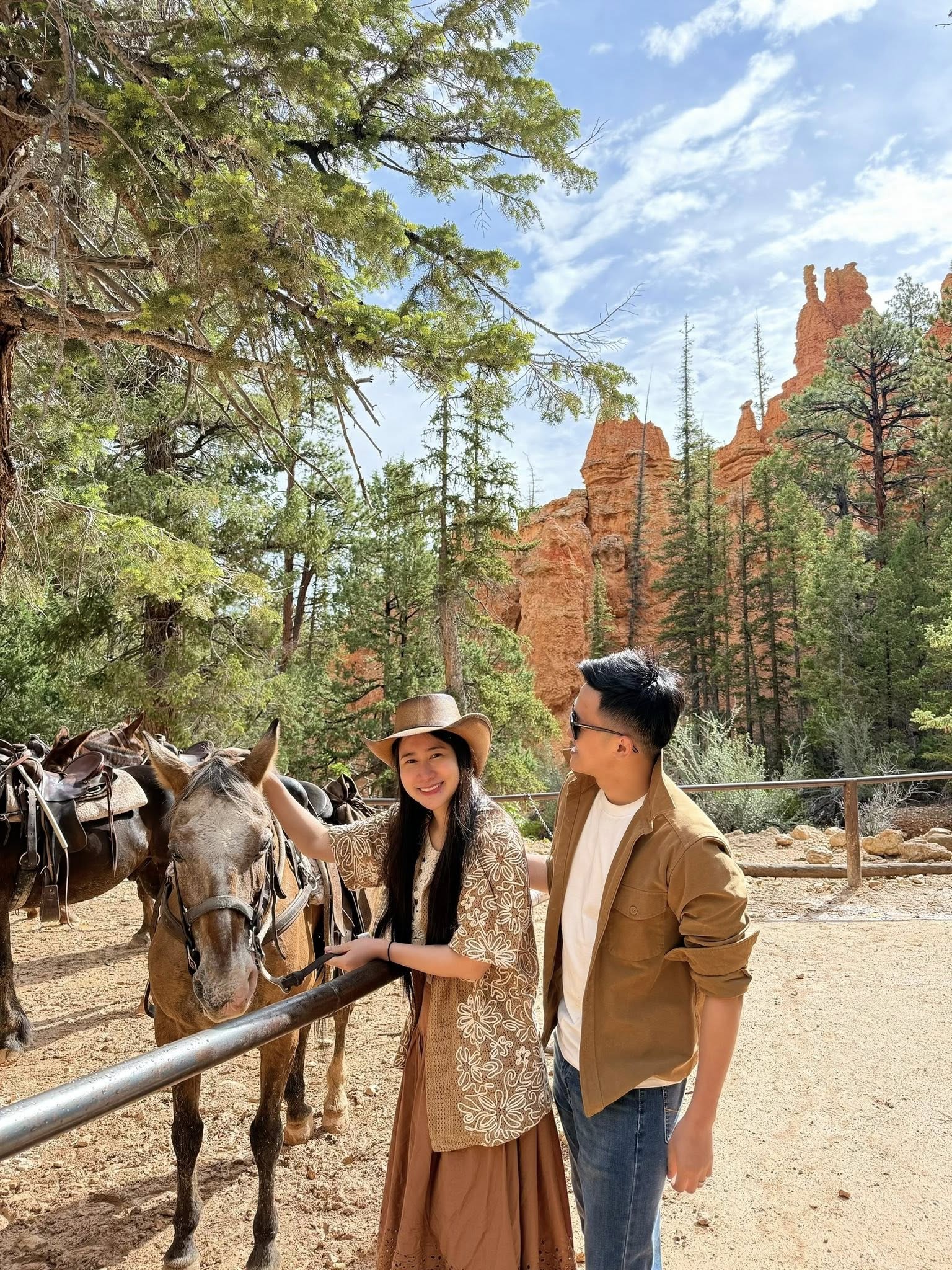 |
Quynh Hoa and her husband, Hoang Anh, pose for a photo in Utah during their June trip. Photo: NVCC |
Quynh Hoa and her husband, Hoang Anh, pose for a photo in Utah during their June trip. Photo: NVCC
According to Hoa, the most challenging aspect of applying for a US visa isn't just compiling documents, but clearly, honestly, and convincingly demonstrating the purpose of the trip and strong ties to Vietnam. Many applicants have sufficient financial resources and valid documents but lack confidence or present their case poorly during the interview, leading to rejection.
Understanding the embassy's evaluation criteria is also crucial. Each visa application is unique, and without experienced guidance, applicants can easily become confused, making mistakes in preparation and interview responses.
Hoa highlights 5 key factors for a strong US visa application. First, honesty and clarity are paramount. All information, both in the application and during the interview, must be truthful and consistent with the applicant's background. Consular officers are adept at detecting fabricated or inconsistent information.
Second, applicants must demonstrate strong ties to Vietnam, assuring the consular officer of their return after the trip. These ties can include stable employment (contracts, positions, leave approvals, business licenses, tax reports), financial stability (savings, assets, property, vehicles), family (spouse, children, parents residing in Vietnam), and community involvement.
Third, the application should be concise, complete, and strategic. While excessive documentation isn't necessary, everything must be coherent, consistent, and easily verifiable.
Hoa's experience underscores the importance of the interview. "Most rejections are due to interview performance, not weak applications," she says. Applicants should know their application thoroughly, answer concisely and to the point, and avoid rambling or being led off-topic. Confidence, friendliness, respect, honesty, and composure are essential.
The US visa application process
Finally, thorough preparation and guidance are vital. Applicants preparing their own applications should carefully research each step. When uncertain, seek expert advice for personalized guidance and avoid common mistakes.
"Applying for a US visa isn't difficult, but you must know the right approach—from mindset to presentation. The application doesn't need to be flashy, but it needs to be logical and honest," Hoa advises.
Hoa also recommends bringing photos of past travels with family and friends. These can help the interviewer understand the applicant's genuine interest in travel and their history of responsible travel, reinforcing the purpose of the US visit as exploration, not long-term stay. Traveling with the same group to multiple countries can also strengthen the application by demonstrating established relationships and shared travel history.
A small but "very important" detail, according to Hoa, is attire. Dressing professionally shows respect and creates a positive first impression. Men should wear trousers, a shirt, and closed-toe shoes, while women should choose modest attire such as trousers, knee-length skirts, or sleeved tops. Avoid overly casual clothing.
Beyond attire, demeanor and body language are crucial. Consular officers quickly assess applicants based on how they enter, greet, sit, and answer questions. Maintaining a calm and confident demeanor is key.
Applicants should provide concise, direct, honest answers; maintain gentle eye contact, avoid fidgeting or looking away while speaking, and refrain from excessive talking or joking due to the limited interview time. If a question is unclear, politely ask for clarification rather than guessing. Presenting oneself as serious, well-prepared, and tied to Vietnam enhances the chances of visa approval.
Applying for her US visa this year, Hoa noticed some changes from previous experiences, such as updates to the appointment scheduling system, making it challenging to secure preferred slots. Interview personnel and questions also varied, sometimes more concise but pointed, requiring succinct and accurate responses. However, Hoa's experience allowed her to navigate these changes smoothly, relying on her thorough knowledge of her application, composure during the interview, and commitment to honesty and clarity.
Each interview is a learning experience for Hoa. "If you prepare properly, understand the process, the consular officer's expectations, and demonstrate honesty, clarity, and responsibility for your trip, obtaining a US visa is not overly difficult," she concludes.
Vu Quynh Hoa began traveling in her 20s. Over 10 years, she has explored hundreds of cultures, from scorching African deserts to frigid Northern Europe. Recognizing that each country has its own policies and procedures, which can change, Hoa advises travelers to thoroughly research visa requirements before each trip to avoid entry issues or last-minute itinerary changes.
"I always maintain an open mind, respect local cultures, and cherish every moment as part of my personal growth," Hoa says.
Phuong Anh



